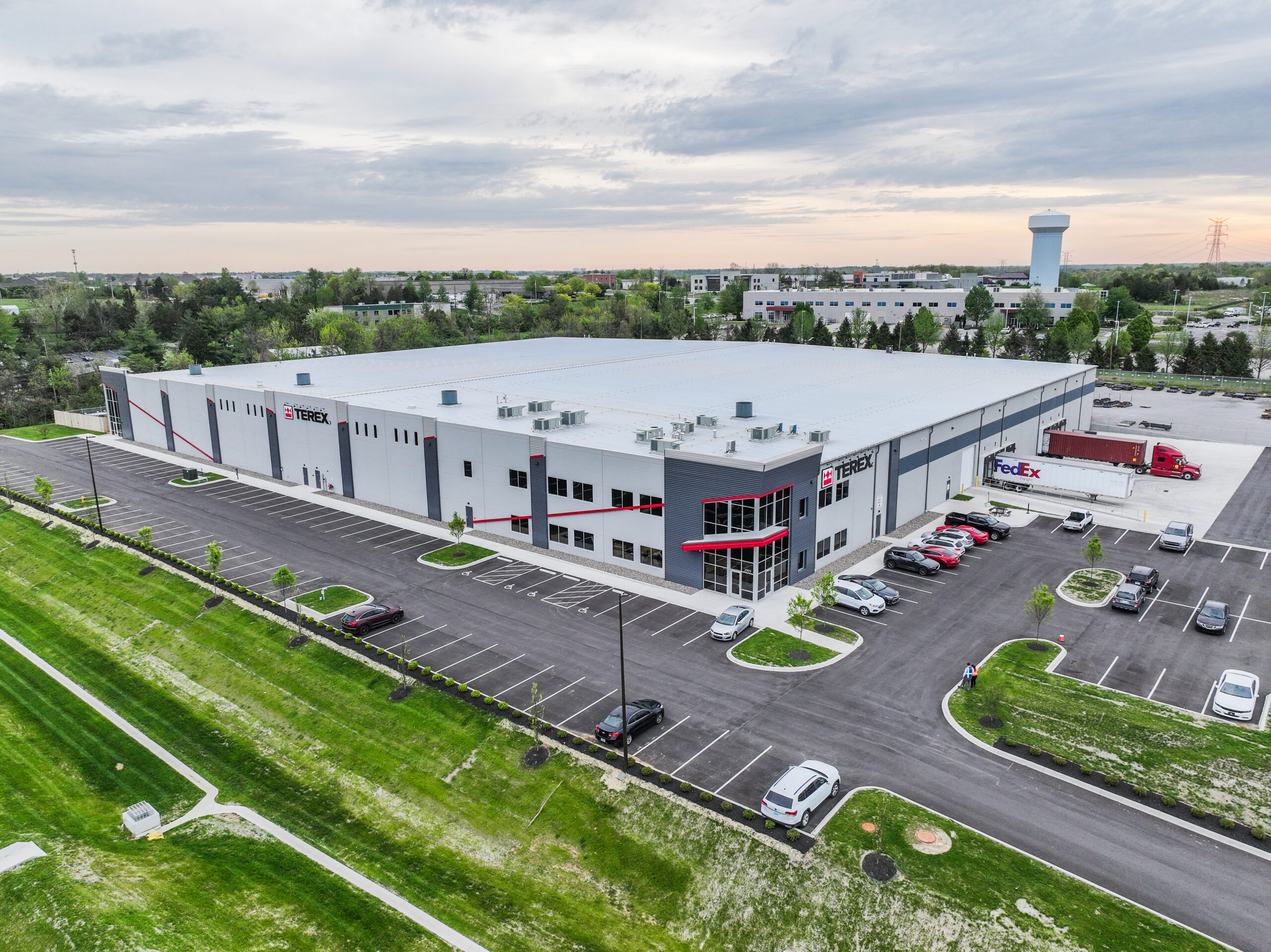
WHAT IS THE BIPARTISAN INFRASTRUCTURE LAW?
WHAT IS THE BIPARTISAN INFRASTRUCTURE LAW?
American President Joe Biden signed the Bipartisan Infrastructure Law, also known as the Infrastructure Investment and Jobs Act, on November 15, 2021. The Act was passed during Infrastructure Week, which was previously only celebrated as an occasion with no actual outcomes or efforts to improve the nation’s infrastructure.
With the Bipartisan Infrastructure Law, the President aspires to improve the country’s crumbling infrastructure with a $1 trillion investment over the next ten years. The legislation will also provide new job opportunities for American workers in the engineering and construction industries.
The President has been outspoken about the importance of investing in infrastructure, noting that it is crucial for economic growth and national security. In remarks on the day of the bill’s signing, he said that the bill wouldn’t only rebuild the infrastructure. It will also create well-paying jobs for hopeful Americans.
The passage of the Bipartisan Infrastructure Law is a significant victory for Americans who believe in the importance of investing in the future, especially sustainable infrastructure. Experts from different industries applauded the efforts of Congress and the President to make this a reality and look forward to seeing the positive impacts this investment will have on the economy and their respective industries.
KEY COMPONENTS OF THE BIPARTISAN INFRASTRUCTURE LAW
When coupled with the Build Back Framework, the Bipartisan Infrastructure Law is expected to create 1.5 million new jobs every year for the next decade. The law will also tackle the following matters in addition to increasing employment opportunities.
CLIMATE CRISIS
It’s no longer hidden that the climate crisis is a reality. The infrastructure bill considers this and provides for measures that will mitigate the effects of climate change.
For example, one of the law’s key components is the investment in green energy. It will create thousands of new jobs in the renewable energy sector while also helping to reduce greenhouse gas emissions.
Additionally, the law provides funding for transportation infrastructure resilient to the effects of climate change. It will help ensure that communities are better equipped to deal with extreme weather conditions and other emergencies related to climate change.
CLEAN DRINKING WATER
Access to clean drinking water is everyone’s fundamental human right. Unfortunately, that is not the case for many Americans. The infrastructure bill includes provisions to improve access to clean drinking water for all.
For one, the Act authorizes funding for the Clean Water State Revolving Funds. It will help states and municipalities finance projects that will improve water quality and protect public health.
The law also establishes a new Office of Water Resources at the Department of the Interior. The office will be responsible for coordinating and improving the delivery of Federal water resources programs.
PROVISION OF HIGH-SPEED INTERNET
We live in a tech-powered time. Therefore, it’s no surprise that one of the infrastructure bill’s main objectives is to provide high-speed internet access to all Americans.
The Act authorizes federal funding for the expansion and improvement of broadband networks. It will help connect rural and underserved areas to the Internet and improve speeds in these areas. The provision of high-speed Internet to these areas will have many benefits for the residents:
- Better Connectivity: The Internet has become an essential part of everyday life. It’s used for communication, education, work, and entertainment. Not having access to high-speed Internet can severely limit someone’s ability to participate in today’s society.
- Job Opportunities: High-speed internet access is also essential for job seekers. Many jobs nowadays are only accessible through the Internet. Without high-speed access, people living in rural and underserved areas will have a harder time finding work.
- Economic Development: High-speed internet access is crucial for economic development. It helps businesses grow and makes connecting with customers and suppliers easier. It also enables people to participate in distance learning programs and other online initiatives.
IMPROVEMENTS IN ROADS, RAILS, AND AIRPORTS
The improvement in the country’s infrastructure has been long overdue. The Bipartisan Infrastructure Law will help address this issue by providing funding to improve roads, rails, and airports.
The law includes provisions for the reconstruction of the Interstate Highway System. It also authorizes funding for Amtrak and other passenger rail projects.
More importantly, the law dictates that better roads and bridges be constructed. Doing so is extremely important, considering that many bridges in the United States are rated as structurally deficient.
The law will also bring about investments in public transit. Nearly 7.8 million Americans use public transport, commuting to work or leisure places. Thus, investments in public transit are seen as a welcome step to make everyday life easier and more convenient for these commuters.
Besides public transit and roads, the law also includes investments in passenger rail. This is because commuters mainly use railways to travel between different parts of the country without spending hundreds of dollars on airfare.
Most importantly, the law aims to make the country’s infrastructure resilient against cyber attacks, extreme weather, and climate change. In the past, harsh weather conditions have caused significant structural and monetary damage to the country.
In 2020, the US experienced 22 climate-related disasters with a loss of $1 billion for each of these incidents. Collectively, the issue has cost the country almost $100 billion. The legislation will help save this money and make communities safe.
The law also includes provisions for the improvement of airports. It is a much-needed investment, as the United States has struggled with airport congestion.
ENVIRONMENTAL REMEDIATION
Environmental remediation refers to cleaning up and restoring an environment damaged by human activities. The infrastructure bill includes a provision for the Environmental Protection Agency to award grants for environmental remediation projects.
The Act will also help improve water quality. It authorizes funding for the Clean Water State Revolving Funds. These funds will help finance projects to improve the water quality in lakes, rivers, and estuaries.
The law authorizes funding for the Environmental Restoration and Flood Prevention Program. The program will help protect communities from the effects of floods. It will do so by constructing levees, restoring wetlands, and funding other flood prevention measures.
Overall, the infrastructure bill is a much-needed step in the right direction. It will provide funding for many important projects that will improve the country’s infrastructure. These projects will create jobs, boost the economy, and improve the quality of life for all.
IMPACT OF THE BIPARTISAN INFRASTRUCTURE LAW ON CONSTRUCTION AND CONCRETE MARKETS
Whenever a new law is passed, it impacts different industries in different ways. The infrastructure bill is no exception. The law will have a positive impact on the construction and concrete markets.
The construction industry is one of the largest employers in the United States. It employs millions of people, making it one of the most critical sectors of the economy. The industry has been growing rapidly in recent years, and the bill will only help boost its growth.
The concrete market is also expected to grow since the industry’s primary product will be high in demand when the mandated construction projects begin. Concrete is a key ingredient in constructing roads, bridges, and other infrastructure projects. As a result, the demand for concrete is high, and the infrastructure bill will only increase it. Here are some components of the bill that will prove beneficial for the construction and concrete industries.
CONSTRUCTION OF BRIDGES
According to the Bipartisan Infrastructure Law, major repairs and rebuilding projects will start in the country soon. In addition, economically significant bridges across the country will be rebuilt to ensure their safety for the traveling public.
The law authorized investment for repairing and replacing bridges that are determined to be structurally deficient or functionally obsolete. These funds will help address the issue of America’s aging infrastructure.
At the same time, this measure also means a high influx of construction jobs. The government will need thousands of construction workers to rebuild these bridges. In addition, it will provide a much-needed boost to the construction industry.
NO MORE LEAD PIPES
The law focuses heavily on providing clean drinking water to Americans, especially those in underprivileged areas. Therefore, the construction industry must stay in line with the law’s guidelines, eliminating the use of lead from water pipes.
It is a significant win for the construction industry, as many companies are producing lead-free piping systems. Moreover, the market is expected to proliferate in the coming years.
RESILIENT INFRASTRUCTURE
Both the concrete and construction industries will have to be keen on keeping resilience in mind when planning and executing their projects. The whole country is preparing for the potential impacts of climate change, so these industries must do the same.
FINAL WORDS
All in all, the Bipartisan Infrastructure Law is good news for the construction and concrete industries. These markets are expected to grow in the coming years, thanks to the influx of projects carried out as a result of the law.
There are many opportunities for businesses in these industries to get involved and help improve America’s infrastructure. At the same time, the law is also a game-changer for the American population as it aims to give them access to clean drinking water, a safe transport system, and high-speed Internet.


